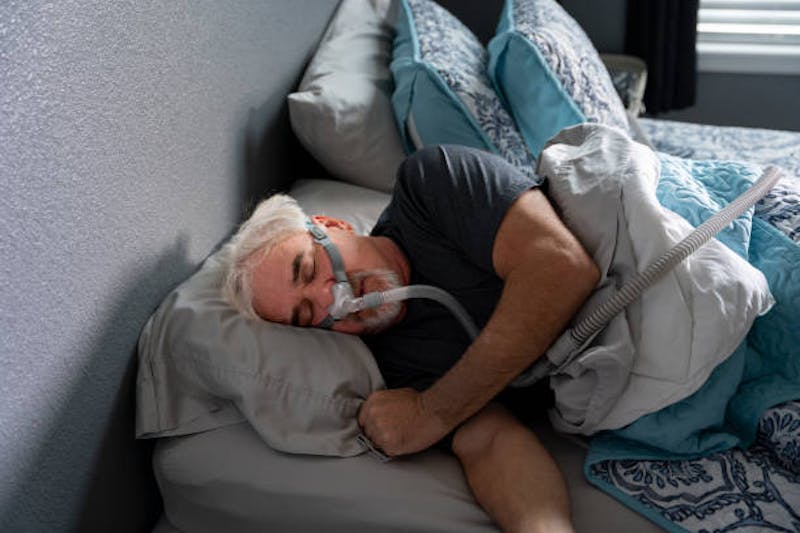
Sleep apnea is a serious condition that affects millions of people, disrupting their sleep and leading to various health complications. At Florida ENT Associates, our experienced ENT specialists provide comprehensive diagnostic and treatment solutions tailored to each patient’s unique needs. One common question that arises is whether losing weight can cure sleep apnea. While weight loss can significantly reduce symptoms for some individuals, it is not a one-size-fits-all solution.
The Link Between Obesity and Sleep Apnea
Obstructive sleep apnea (OSA), the most common form of sleep apnea, occurs when the muscles in the back of the throat relax too much during sleep, causing airway obstruction. Here’s what you need to know:
- Excess body weight can contribute to this issue by increasing fat deposits around the upper airway, making it more likely to collapse during sleep
- The accumulation of fat in areas such as the neck and tongue can further restrict airflow, exacerbating the severity of OSA
- Additionally, obesity is often linked to decreased lung volume and diminished muscle control in the airway, further compounding breathing difficulties during sleep
Studies suggest that individuals with obesity are at a significantly higher risk of developing OSA, and weight loss can often reduce symptoms. Research has shown that even a modest weight loss of 10-15% can lead to measurable improvements in breathing patterns, reduced snoring, and overall better sleep quality.
Can Losing Weight Cure Sleep Apnea?
For some individuals, losing weight can drastically improve or even eliminate sleep apnea symptoms. However, the effectiveness of weight loss as a treatment depends on various factors, including:
- The severity of the condition
- Anatomical differences
- Underlying health issues
While weight loss can reduce airway obstruction and lessen the severity of sleep apnea, it may not fully cure the disorder for everyone.
Who Can Benefit from Weight Loss for Sleep Apnea?
Weight loss can be particularly beneficial for:
- Overweight or obese individuals diagnosed with obstructive sleep apnea
- Patients experiencing mild to moderate sleep apnea symptoms
- Those looking to reduce their dependence on CPAP therapy
However, patients with central sleep apnea, which is caused by issues with brain signaling rather than physical airway obstruction, may not see significant improvements with weight loss alone.
Other Effective Treatments at Florida ENT Associates
- CPAP Therapy: Continuous Positive Airway Pressure (CPAP) therapy is a widely used treatment that keeps the airway open by delivering a steady stream of air through a mask.
- Sleep Apnea Surgery: Our team offers personalized surgical interventions to address airway obstructions and improve breathing patterns for patients who do not respond well to non-surgical treatments.
- Lifestyle Modifications: In addition to weight management, quitting smoking, adjusting sleep positions, and treating nasal congestion can improve sleep apnea symptoms.
Experience Expert Care for Sleep Apnea at FENTA
While weight loss may be a helpful strategy for some, a comprehensive evaluation is essential to determine the most effective approach for your condition. If you are struggling with sleep apnea, Florida ENT Associates is here to help. Our team of skilled ENT doctors provides state-of-the-art diagnostic testing and customized treatment plans to ensure you receive the best care possible.
Contact Florida ENT Associates today to schedule a consultation and take the first step toward restful, healthy sleep.
